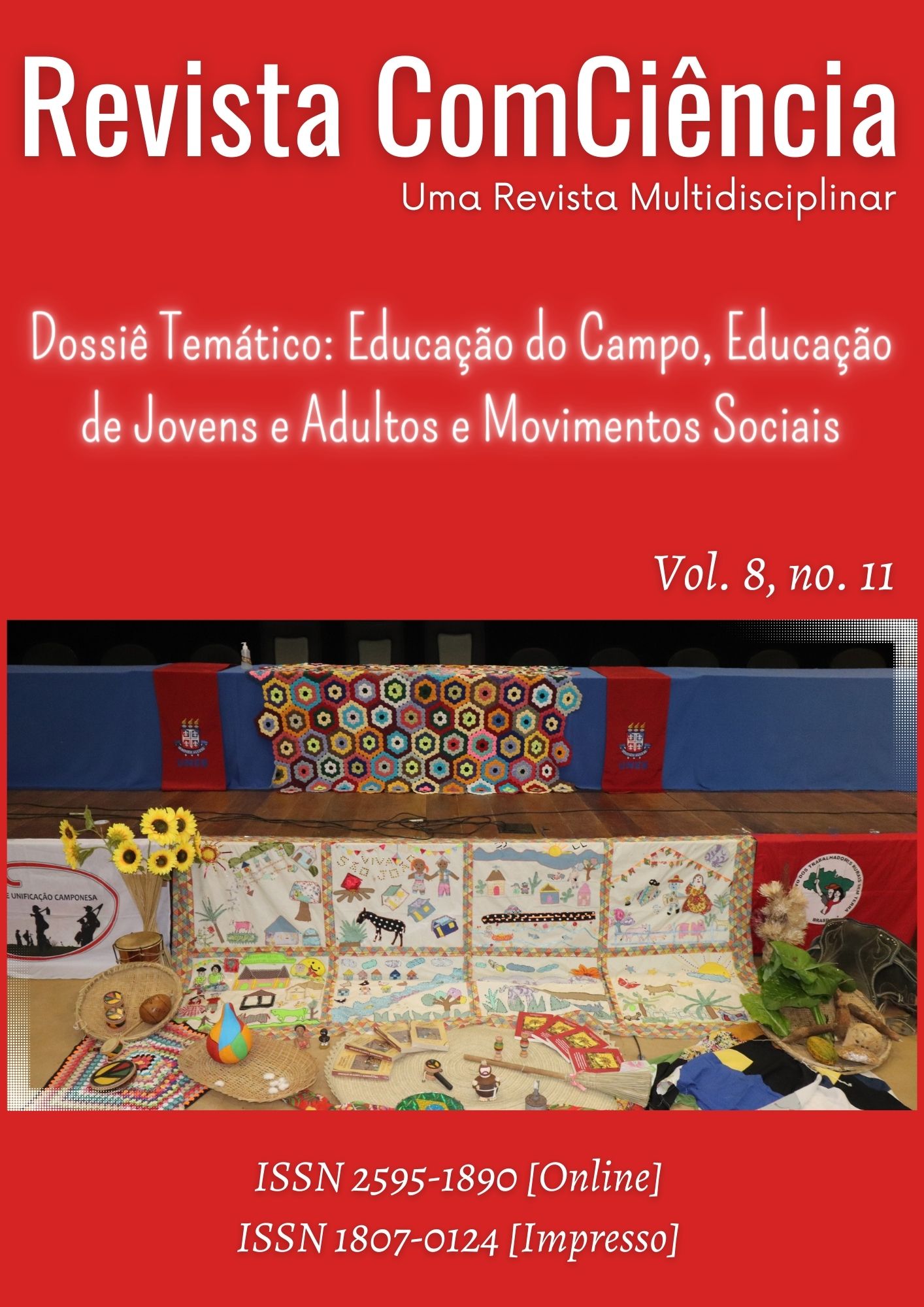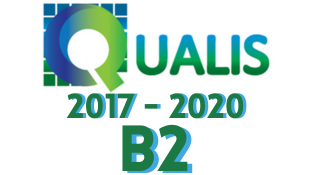The historical route from a school in the field to a school in the field
DOI:
https://doi.org/10.36112/issn2595-1890.v8.i11.p34-49Keywords:
Rural education, Teaching GeographyAbstract
Field Education is a recent discussion that started in 1990 with the articulation of social movements and no governmental entities that proposed a reflection on the role of the school, the educator, the curriculum and the field man in the constitution of an education that valued the culture of the countryside. The struggle for education was part of the struggle for land led by these movements, driven by the desire to conquer the right to live off the land and remain in the countryside. There is a diversity of elements that intertwine in the reality of the countryside, among them, the devaluation of education that takes place in the countryside, lack of knowledge of public policies that should serve the Field School and the lack of recognition of the importance of the rural man. For urban society are reflected in the curricular and pedagogical proposal offered in schools. Over the years, field education was treated in an extemporaneous and labeled way, which sometimes caused the demotivation of those who believed that it was possible to have a quality school in the countryside. The scope of this work is to understand the historical issues that forged Field Education in Brazil, so that it could envision rural education, in addition to rural education.
Downloads
References
ARROYO, Miguel G., CALDART, Roseli S., MOLINA, Mônica C. (Org.). Por uma educação do campo. Petrópolis: Vozes, 2004.
ARROYO, Miguel G. Educação básica e movimentos sociais. In: ARROYO, Miguel G.; FERNANDES, Bernardo M. A educação básica e o movimento social do campo. Brasília: Articulação Nacional por uma Educação Básica do Campo, 1999.
BRANDÃO, Carlos R. “No rancho fundo”: espaços e tempos no mundo rural. Uberlândia: EDUFU, 2009. O trabalho de saber: cultura camponesa e escola rural. São Paulo: FTD, 1990.
BRASIL. DECRETO Nº 7.352, DE 4 DE NOVEMBRO DE 2010. Dispõe sobre a política de educação do campo e o Programa Nacional de Educação na Reforma Agrária - PRONERA. Brasília, 2010.
BRASIL. PARECER N. 36/2001. Dispõe sobre as Diretrizes Operacionais para a educação básica nas escolas do campo. Brasília, 2001.
BRASILIA (DF). Secretaria de Educação Continuada, Alfabetização e Diversidade. Educação do campo: diferenças mudando paradigmas: cadernos SECAD 2. Brasília (DF), 2007. 81p.
BRASIL. Ministério da Educação. Instituto Nacional de Estudos e Pesquisas Educacionais Anísio Teixeira. Ministério do Desenvolvimento Agrário. Instituto Nacional de Colonização e Reforma Agrária. Programa Nacional de Educação na Reforma Agrária. Pesquisa Nacional da Educação na Reforma Agrária (versão preliminar). Brasília, DF: 2005. Disponível em: portal.mec.gov.br/index.php?catid=201&id=2408&option
Acesso em: 01 de junho de 2022.
CALDART, Roseli. Por uma educação do campo: traços de uma identidade em construção. In. KOLING, Edgar J., CERIOLI, Paulo, CALDART, Roseli S. Educação do Campo: identidade e políticas públicas. Brasília: Articulação Nacional, 2002. p. 18-25
______. Por uma Educação do Campo: traços de uma identidade em construção. In: ARROYO, Miguel G., CALDART, Roseli S., MOLINA, Mônica C. (Org). Por uma educação do campo. Petrópolis: Vozes, 2004. p. 147-160
FLORES, Maria Marta Lopes. Escola nucleada rural: histórico e perspectivas Catalão/ Go (1988-2000). 2000. 158 f. Dissertação (Mestrado em Educação Brasileira) – Faculdade de Educação/Universidade Federal de Uberlândia, Uberlândia, 2000.
FONSECA, Maria Tereza Lousa da. A extensão do rural no Brasil, projeto educativo para o capital. São Paulo: Edições Loyola, 1985. 191p.
LEITE, Sergio C. Escola rural: urbanização e políticas educacionais. São Paulo: Cortez, 1999. v.70.
PESSOA, Jadir de Morais. A revanche camponesa. Goiânia: UFG, 1999.
______. Extensões do rural e educação. In: PESSOA, Jadir de Morais (Org.) Educação e ruralidades. Goiânia: UFG, 2007.
PESSÔA, Vera Lúcia Salazar, CLEPS JUNIOR, João, GOBBI, Wanderléa A. de Oliveira. O proceso de gestão das águas e a questão ambiental na bacia do Rio Araguari. Caminhos de Geografia, Uberlândia, v.6, p. 74-93, set.2003.
Disponível em: <http://www.seer.ufu.br/index.php/caminhosdegeografia/article/viewFile/10132/6001>
Acesso em: 01 de junho de 2022.
RAMOS, Lilian M. P. de C. Escolas rurais consolidadas paranaenses: mito e realidade. 1987.220f. Dissertação (Mestrado em Educação)- Universidade Federal do Paraná, Curitiba, 1987.
RIBEIRO, Marlene. Movimento camponês, trabalho e educação. São Paulo: Expressão Popular, 2010.
RUA, João. Urbanidades no rural: o devir de novas territorialidades. Campo-Território: Revista de Geografia Agrária, Uberlândia, v. 1, n. 1, p. 82-106, fev. 2006. Disponível em: http://www.campoterritorio.ig.ufu.br/include/getdoc.php?id=24&article=23&mode=pdf. Acesso em: 19 nov. 2010.
Downloads
Published
How to Cite
Issue
Section
License
Copyright (c) 2023 Revista ComCiência, uma Revista multidisciplinar

This work is licensed under a Creative Commons Attribution-ShareAlike 4.0 International License.





